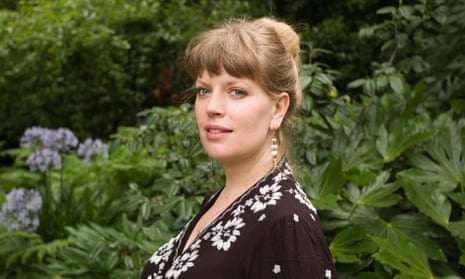Born in Chelmsford, Essex, Sarah Perry grew up in a strict Baptist family immersed in classic literature, Victorian hymns and the King James Bible. She has a PhD in creative writing from Royal Holloway, London, where she was supervised by Andrew Motion; she has been the writer in residence at Gladstone’s Library and the Unesco World City of Literature writer in residence in Prague. Her debut novel, After Me Comes the Flood, was published in 2014, followed in 2016 by The Essex Serpent. Inspired by the myth of a sea serpent on the Essex coast, the novel was named book of the year 2017 at the British Book awards and is out now in paperback.
1 | Short stories
Tim Winton, The Boy Behind the Curtain
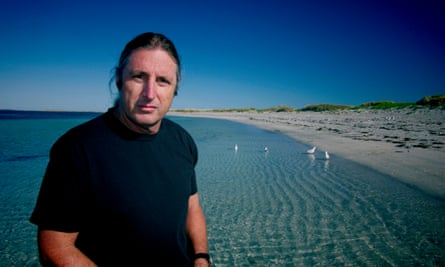
A friend recommended this as an antidote to my temporary inability to read anything over 100 pages. I’d never read Winton before and became an instant fan. The most startling piece is one in which he recounts catastrophic accidents that have marked his life. I’m the most appalling ghoul and tell myself that as a writer I’m not only entitled but almost obliged to peer at the wreckage of road accidents and so on. Winton offers a masterclass in turning appalling incidents into meditations on mortality, fatherhood and responsibility.
2 | TV
Master of None
The first season of Master of None was very good; the second is so good it’s a little bewildering. The opening episode is filmed in black and white and pays homage to mid-20th century Italian cinema; another traces the coming out of a lesbian woman of colour through Thanksgiving dinners over the course of two decades. My favourite episode is a kind of love song to New York, with glimpses into the lives of taxi drivers, hotel concierges and shopkeepers. It’s pure Robert Altman and one of the best 30 minutes of television I’ve ever seen.
3 | Museum
The Dylan Thomas Boathouse, Laugharne
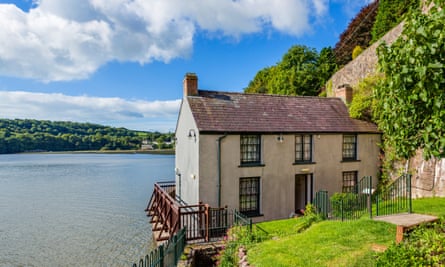
I recently went to Laugharne to see where Dylan Thomas lived with Caitlin [Macnamara, his wife] for much of his life. The wonderful thing was that the whole of Laugharne belongs to them still; in the hotel where he used to drink, they still talk fondly of “Dylan”, always with just his first name, as if you’d expect him to come walking in for a pint. The weather was perfect: enough mist to diffuse the light into a pearly haze over the beach, where you could look out and see Fern Hill. The Boathouse is kept much as it was and so is his writing shed, with Woodbines in the ashtray and postcards of DH Lawrence and Edith Sitwell pinned over the desk. I came away with an entirely spurious but nonetheless profound feeling of kinship and a copy of his letters.
4 | Film
Get Out (director Jordan Peele, 2017)
Get Out is everything a horror film should be: frightening, funny, mindful of the conventions without being derivative, fabulous to look at and – importantly – about something other than itself. The lead (Daniel Kaluuya) has such an expressive face that every emotion he registers, from wry bewilderment to mortal dread, is contagious. It’s a satire on race relations, which also seemed to me a fable on cultural misappropriation taken to the wildest extremes, but is never less than hugely entertaining. I also found it almost impossible to guess what on earth was going on – which is much rarer in horror than it ought to be. The best line in the film comes from Lil Rel Howery as a heroic security guard – anyone who doesn’t cheer when it comes shouldn’t be allowed anywhere near a cinema.
5 | Art
Paul Nash, the Sainsbury Centre
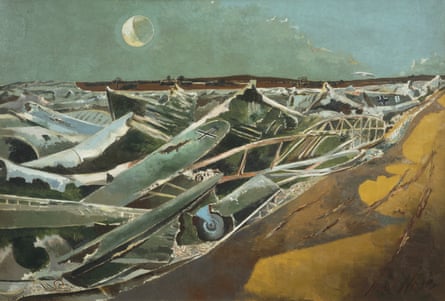
When I first visited the Sainsbury Centre in Norwich, I was fresh from a decade in London and convinced everywhere else was terribly parochial, so was astonished to walk in and meet several works by Velázquez and a Degas ballerina. There is currently a Paul Nash exhibition, and I am planning to visit as soon as I can. I only know his work as an official war artist – those canvases showing acres of trees reduced to what look like the smoking chimneys of a vast factory – and though I want to see these, I also want to encounter him in other ways, especially his strange, surreal works showing ancient landscapes.
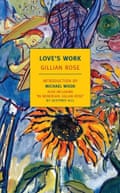
6 | Nonfiction
Love’s Work, Gillian Rose
Gillian Rose was an English, Jewish philosopher, who wrote this memoir as she was dying of cancer. But it’s far from “just” a memoir. She digresses into the limitations of religion and philosophy, what it means to be Jewish, the tricksiness of sexual desire and how we face mortality. It all sounds a bit worthy and dry, but it’s anything but: one memorable passage begins: “I want to talk about shit” and it’s often very funny. The book’s epigraph is also its guiding theme, a quote from Silouan the Athonite, a Russian Orthodox monk: “Keep your mind in hell and despair not.” What with the state of the world these days, I’ve taken to walking around with it written on my hand.
7 | Music
Rusalka, Dvořák

I recently went to Prague, ostensibly to do some research but mostly so I could drink beer and get a cheap box seat at the opera. I saw Rusalka, Dvořák’s opera about a water nymph who falls in love with a mortal man, and – rather idiotically, if you ask me – trades her immortality for the chance to be with him. It was a charmingly old-fashioned production and the atmosphere was very relaxed, as it often is in Prague, where going to the opera is a fairly everyday pursuit. I sat sneakily drinking Bohemian wine from the bottle, waiting to have a good old swoon at Rusalka’s Song to the Moon, feeling perfectly content.
